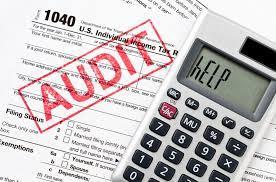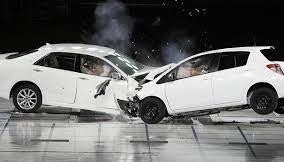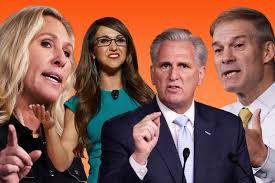
We’ve been there, done that: Republicans try to hold hostage the Congressional vote to raise the U.S. debt ceiling, with maybe too a government shut-down, to extract some concessions. It always gets resolved in the end.
This is an unnecessarily crazy system, predictably producing these periodic crises. We could change that — if our whole governmental schema were not so dysfunctionally gridlocked by political polarization.
The next crisis looms soon. And this time looks different.
Of course Republicans only discover fiscal rectitude when Democrats are in power. During Trump’s presidency they spent like drunken sailors, piling on debt, always raising the ceiling when needed, with no whisper of concern. Indeed, they compounded deficits by passing a massive tax cut, mainly benefiting the rich and corporations. A big reason why the federal budget is so out of balance — yet Republicans now pose as warriors against profligacy.

Furthermore, if they were truly worried about deficits, here’s one simple remedy: fund the IRS adequately so it can collect the taxes actually owed (even after Trump’s tax cuts). Currently the IRS lacks the needed resources, so most high-income tax returns aren’t even audited. But Republicans demonize the IRS and try to starve it. The resulting tax collection gap has been estimated to equal around three-fourths of the annual deficit. So collecting that money would go far toward rendering unnecessary the spending cuts Republicans advocate (or pretend to advocate).
By the way, we’ve learned that the IRS, unable to audit many complex tax returns of rich folks, which is costly and hard, instead does what’s easy: targeting lower income taxpayers. Nice.
Meantime, note that for all the righteous rhetoric about government spending, a vote to raise the debt ceiling has nothing to do with future spending. Rather, it’s paying the bills for past spending. Nevertheless, Republican extortionists are yet again making demands about spending in exchange for their needed votes to increase the debt limit, so the government can pay its bills and not default. The Biden administration, standing on principle, insists it won’t play that game.

It’s a game of chicken. And it seems both sides have thrown their steering wheels out the window.
Economist Paul Krugman has said a U.S. debt default would “blow up the world economy.” What that would really mean, we don’t know. It’s uncharted territory — but certainly very dangerous territory.

One thing it would surely mean is financial markets downgrading U.S. government bonds, triggering higher interest costs on all our trillions of debt. That itself would hugely bust our budget. Republicans’ apparent willingness to let this happen makes all the more preposterous their professed concern about future deficits.
In past episodes, default was avoided because a certain modicum of sanity still prevailed among Republicans. We can no longer count on that. Speaker McCarthy, to win the gavel, made himself hostage to the GOP’s bomb-throwing crazy caucus. They may now be willing to bring the house down — imagining that its happening on President Biden’s watch will mean he gets the blame, and hence the catastrophe will politically benefit Republicans.

And these people have the chutzpah to call themselves “patriots.”
The Economist recently presented a full-throated counter to notions of American declinism, enumerating all the ways in which we’re actually doing extremely well compared to other advanced nations. But it’s threatened by that misconceived declinism itself, because it drives our self-harming retreat from globalization and free trade — so important to our economic health. And one sphere where a declinist narrative has much truth is the political one. Now seriously threatening a debt default which, The Economist fears, would do huge damage to our economy and international standing.
